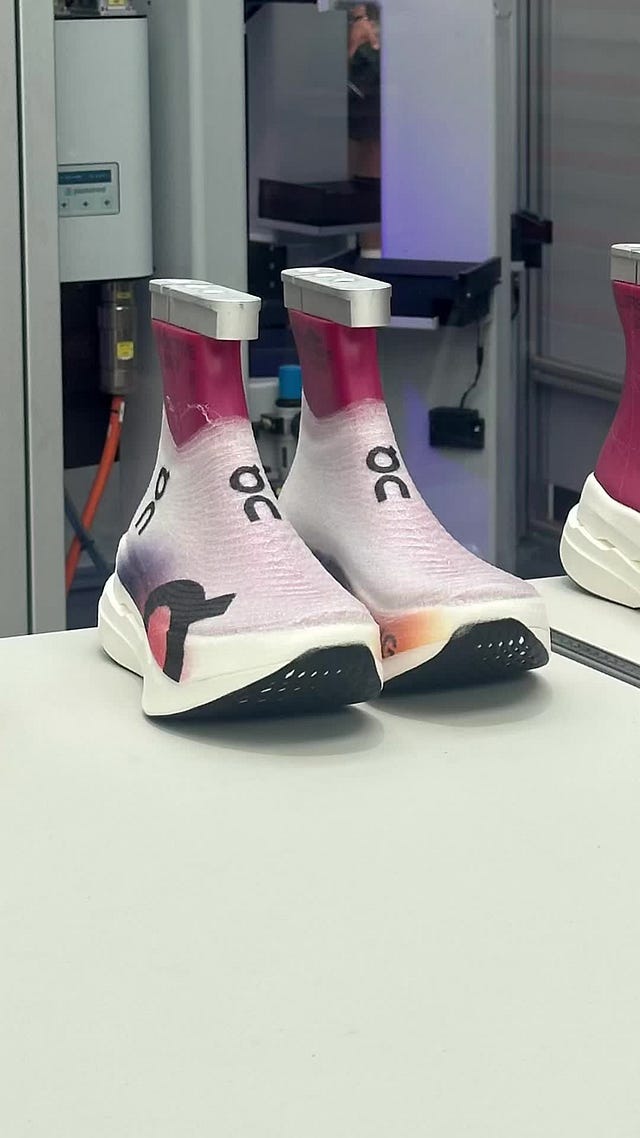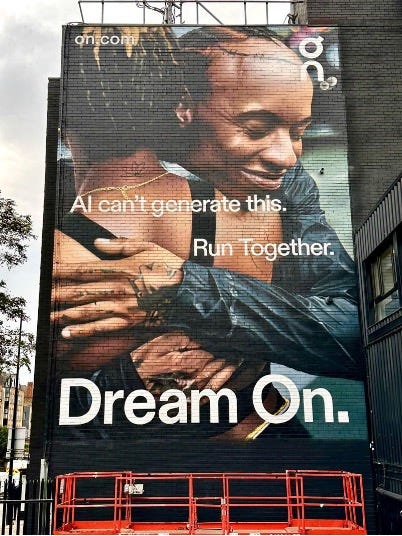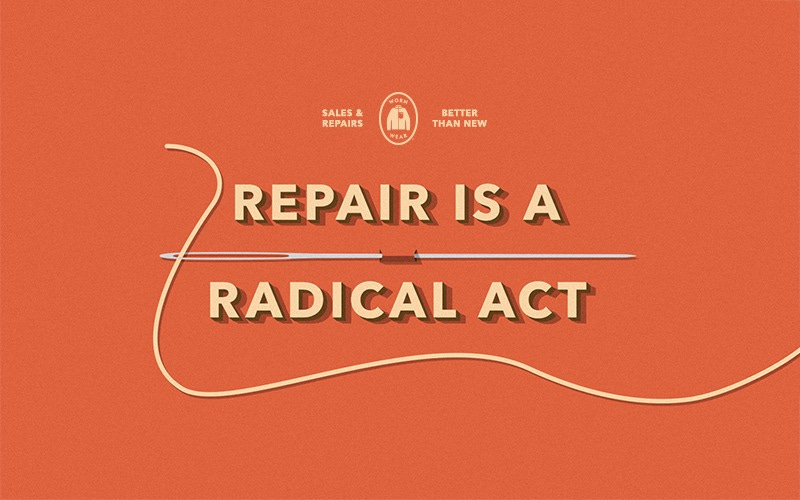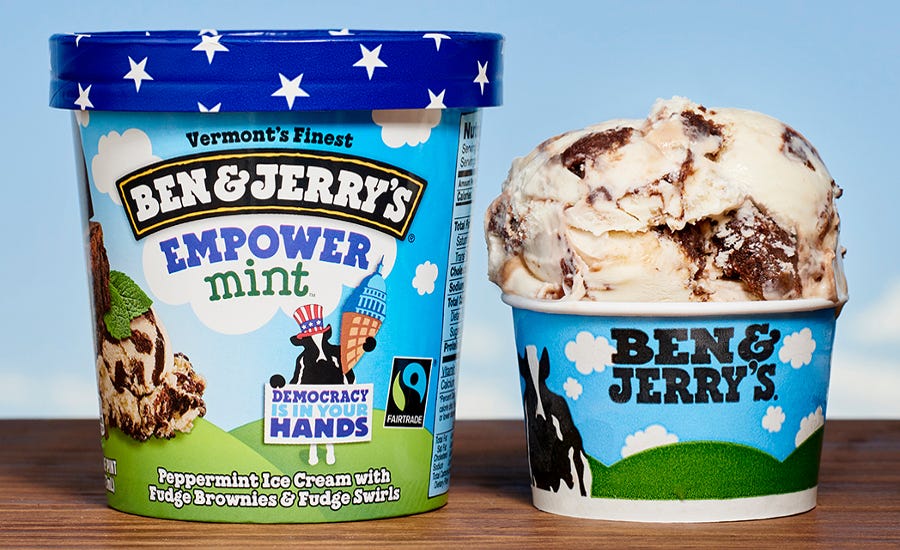Ideas We Love: Embracing Digital Sobriety
Issue Number 36: Guest editor Andrew Mclean writes a love letter to embracing moderation in the AI era
Hi. How are you?
It’s been a bit full on at IWL HQ so we’re bringing you something a little bit different this week. We’ve handed the reins over to friend of the newsletter Andrew McLean. We all worked together at PHD, but now Andrew runs a business called Garden Gnome which does interesting stuff at the intersection of communications strategy and AI but ‘minus the scary bits’….
Over to you, Andrew….
Hi there!
So last weekend, I found myself in Sainsbury's on the hunt for some low or no alcohol beer. It’s a Saturday night. I’m pushing the boat out. Anyway, I get to the aisle and the shelf was empty. For the sake of hyperbole I’m saying empty, but in reality there were little more than four bottles of Corona Cero available...
As I stood there contemplating my options (and yes, eventually settling for a delightful Corona Cero), it struck me how the no/low alcohol category has evolved. What started as a compromise has become a conscious choice, even a badge of honour. Some people now choose alcohol-free options not because they must, but because they want to.
It got me thinking about another hot topic in marketing right now - AI. That’s right, the guy who is into AI is writing about AI but let me stop you there. Whilst everyone's talking about diving headfirst into the generative AI thing, some brands are making a different decision. They're finding power in AI abstinence, or at least in selective adoption. And just like that empty shelf, their stance isn't about what they can't do - it's about what they're choosing not to do.
The Idea: Strategic AI Sobriety 🍺 🚫 🤖
Peering into the world of brands, it seems like we’re seeing three distinct approaches emerge.
First, there's Dove, who've fully abstained with their bold declaration to never use AI-generated content of women in their marketing. For a brand that built its platform on "Real Beauty," AI abstinence isn’t just a tech choice – but a natural evolution of their 20-year commitment to authentic representation.
Then there's ON Running, taking the "mindful drinking" approach. As you might expect of a modern brand with any form of digital presence, AI use is heavy behind the scenes - recommendation engines, machine learning etc…. And they’re clearly not adverse to new technology, they even 3d print an incredibly cool looking shoe.
But when it came to their recent “dream on” campaign, they keep their creative distinctly human. Marking a clear strategic choice and line-in-the-sand where AI is concerned: When it comes to product and back-end, yes please! But front-end human experience? No thanks.
And then finally, there's Heinz, who found a way to be the designated driver at the AI party. Their brilliant "Draw Ketchup" campaign used AI to prove that when you ask artificial intelligence to draw ketchup, it invariably draws Heinz bottles. They turned AI into proof of their brand supremacy while keeping their actual product gloriously analog. Its meta, I love it. And plays expertly into ‘it has to be Heinz’ and even the AI knows it.
Why I love this ‘idea’ 💕💡
#1 Choice as a Superpower 🦸♂️
Just as the no/low alcohol movement turned abstinence into aspiration, these brands are turning selective AI choice into assets. Dove isn't just avoiding AI; they're elevating a new cause to add more fuel to the real beauty fire. ON isn't just using AI selectively; they're showing how technology can enhance rather than replace human experience. And Heinz? They're using AI to tell stories about their brand without letting it anywhere near their secret recipe. It's not about what they're saying no to - it's about what they're saying yes to instead.
#2 Perfect Brand Alignment 👌
Each stance feels as natural as a lime in a non-alcoholic G&T. Dove’s position amplifies their authentic, ethical positioning. ON's selective use of AI reflects their precision-meets-performance DNA. Heinz's playful AI experiment reinforces their position as the category leader. None of these feel forced - they're natural extensions of who these brands are.
#3 Creating New Narratives 📚
Most brilliantly, each approach has opened up fresh conversations. Just as alcohol-free spirits created new occasions and rituals, these brands are creating new ways to think about creativity and technology. Dove has made real beauty more relevant in a digital world. ON has made AI feel personal rather than mechanical. And Heinz has used AI to prove their brand dominance in a totally unexpected way.
What would we do with it 💕
Let's imagine how these approaches could go even further and apply this thought to other brands and other initiatives.....
#1 Patagonia's Repair vs Replace ✂️
Imagine Patagonia or ON creating an AI tool that actively discourages unnecessary purchases. The "Worn Wear AI" could analyse user-submitted photos of damaged gear and prioritize repair suggestions over replacement recommendations. Each repair suggestion could come with a calculation of the carbon saved by repairing rather than replacing - a beautiful subversion of the typical e-commerce recommendation engine.
#2 Ben & Jerry's Flavour Democracy 🍨 🧐
What if Ben & Jerry's created a flavour development process that explicitly puts human judgment over AI efficiency? They could run parallel tracks: one using AI to analyse flavour trends and sales data, another using a more traditional community-led approach. Then publicly share how the human-led process creates more interesting, values-aligned flavors. It would be a masterclass in showing when human inefficiency actually creates better results.
#3 Etsy's Verified Hand-Made 🪡 ✔️
Think of Etsy developing an AI system designed specifically to verify human craftsmanship - an AI that proves things weren't made by AI. It could analyse process videos, tool marks, and production patterns to authenticate genuine handmade items, creating a new standard for "verified human-made" products. The delicious irony: using AI to protect and promote human creativity rather than replace it.
Until Next Time
Just as the no/low alcohol category has shown us, sometimes the most powerful position isn't about having more of something - it's about knowing exactly how much you need. In the AI age, perhaps the strongest stance is having absolute clarity about where AI belongs in your brand story - and where it doesn't. After all, Sainsbury’s empty shelf wasn't a sign of failure - it was proof that sometimes, choosing to do less can make you more desirable than ever.
Andrew x
Thank you Andrew
If you’d like to read more of Andrew’s thoughts on the topic of AI and Advertising, then check him out on Linkedin. Garden Gnome can be found here.
Normal service will resume next week!
Tom and Matt x
















Very late to this post, but I'd be very interested if you took a wider look at why the last 1-2-3 years of 'it has to be Heinz' work works.
And keep going, the blog is excellent!